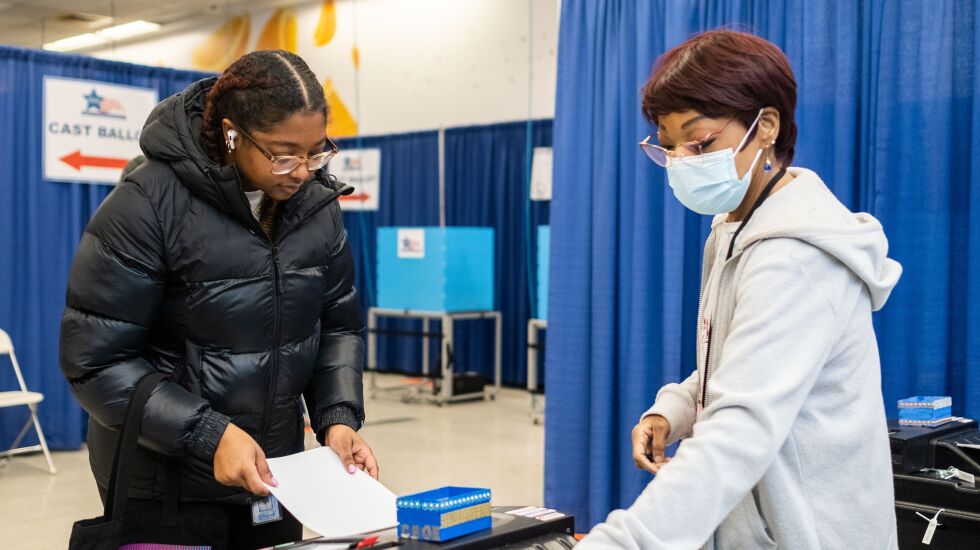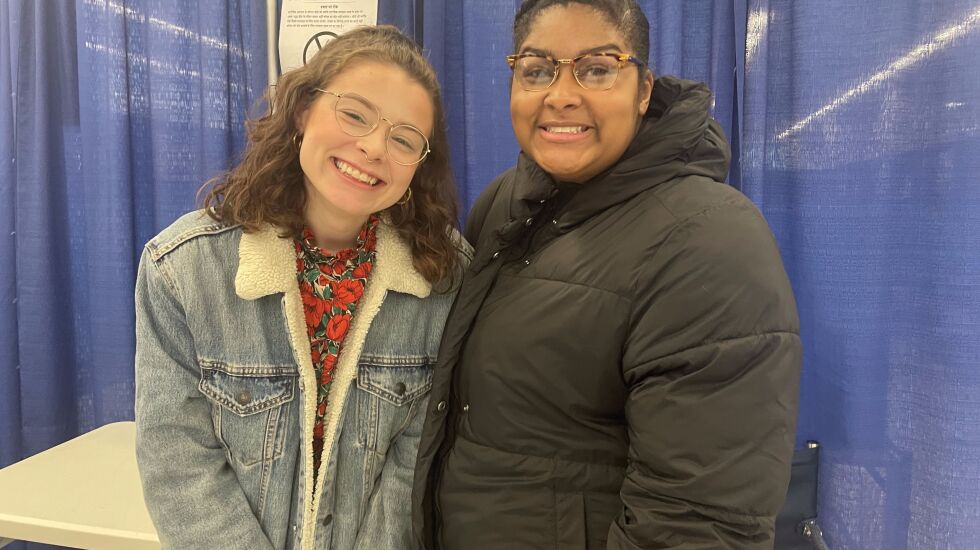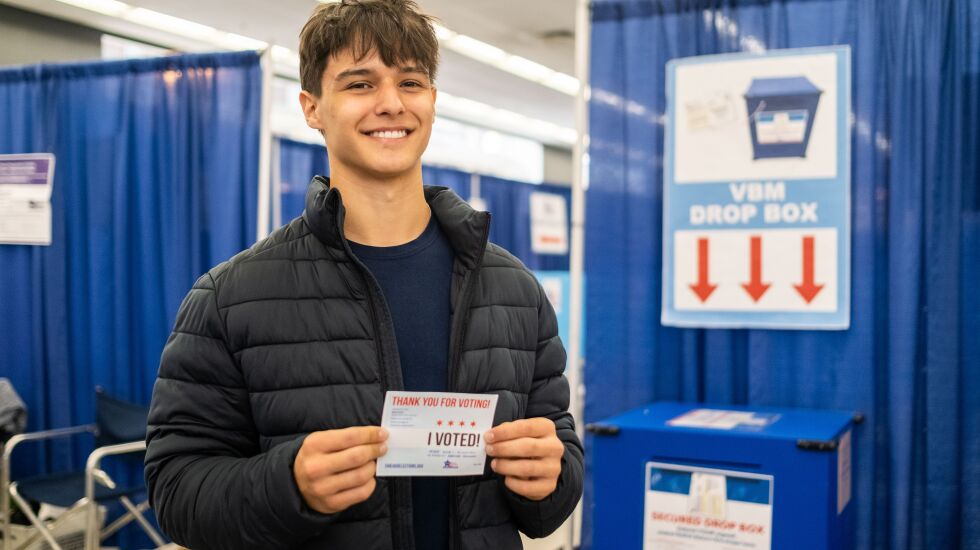
At 18, Ben Flerlage already has voted in three elections: the November midterms, the first round of Chicago municipal elections in February and now, the mayoral runoff, casting an early ballot for Paul Vallas Wednesday at the Loop Supersite.
Flerlage, a senior at the Latin School of Chicago, is not typical for his age group. Just over 3% of voters in the Chicago municipal elections on Feb. 28 were 18 to 24 years old. About 16% of registered voters in that age group voted.
David Doherty, a professor of political science at Loyola University, said low turnout among young voters is not unique to Chicago. He said young people vote in lower numbers in democracies worldwide, and especially in municipal elections.
Young people vote less is because they are more mobile and may not be registered to vote where they live, Doherty said.
That’s why Kali Lachner, a 21-year-old DePaul University student, didn’t vote in February.
Lachner is from Omaha, Nebraska and voted there in the November midterms, but could not switch her residency in time to vote in Chicago in February, or in the runoffs.
“The deadlines creep up on you,” Lachner said while sitting on a park bench near DePaul’s downtown campus. “By the time you figure out you need to send in the paperwork, it’s already passed.”

Meredith Metzger and Mari Oliver, both 22, started voting in Chicago when they moved here to attend college. Now college grads, they cast ballots for Johnson on Wednesday.
“A lot of people think, ‘Oh, my license still says I live in so-and-so, but I’ve lived in Chicago for a year, so I don’t think I can do it,’” said Metzger.
Oliver, originally from Texas, said the process of changing her state residency was more involved than changing residencies within Illinois.
Young voters cite public safety, education
Oliver said public safety is one of the most important issues to her in this election. But, she added, she did not agree with Vallas’ approach on crime, saying it focused too heavily on policing without addressing issues like mental health and racism.
Metzger said she supports Johnson because of “the way that he’s addressing public safety, getting to the root cause of why crime happens and preventing it.”
Evan McKenzie, chair of the political science department at the University of Illinois-Chicago, said criminal justice is one of the most important issues to Chicago voters on both the left and right, though left-leaning voters are particularly interested in police reform.
Metzger said education policy is another key issue for her.
Jacobi Mallett and Anastasia Batchelor, both 19, said they want to see more money invested in schools. Both attended public schools on the West Side. Neither voted in February, but both said they planned to vote in April.
Flerlage, the Vallas voter, said an important issue for him is taxes.

Disillusionment, fatigue deter some voters
Doherty said “burnout” and not feeling represented by older candidates may play a role in low turnout among younger voters.
Young people “rarely have an opportunity to go out and vote for someone who they think really understands their interests as young people,” Doherty said.
John Cook, 21, said he has noticed excitement about politics declining since 2020. Cook, a student at the School of the Art Institute of Chicago, said he did not vote in February.
“Our first election in 2020, it was like, everything is the most important that could possibly be, and so I think everybody was up on that. It’s been like a big deflation in political activism,” Cook said. “Even people who were engaged before have dwindled off.”
McKenzie added that when candidates move toward the political center as an election approaches, it can disappoint young people who initially felt energized to vote.
Joanne Crowley said she thinks apathy is a factor that causes people her age not to vote. Crowley, 23, a student at DePaul, lives on the Southeast Side.
Crowley said she plans to vote for Johnson on April 4. Lachner, Cook and Batchelor also said they support Johnson, despite not voting in February.
Johnson’s campaign has appealed to some younger voters with its more progressive politics. McKenzie said Thursday’s Bernie Sanders rally at UIC in support of Johnson speaks to young peoples’ interest in Johnson. Sanders, who ran for president in 2016 and 2020, also found support in the 18-24-year-old demographic.
“Some candidates fire young people up more than others,” McKenzie said.
Doherty said the lack of political participation among young people can become a vicious cycle.
“Young voters continue to sit on the sidelines because no one’s mobilized them,” Doherty said. “Those who are in a position to potentially mobilize them don’t reach out to young voters because they view them as not mobilizable.”







